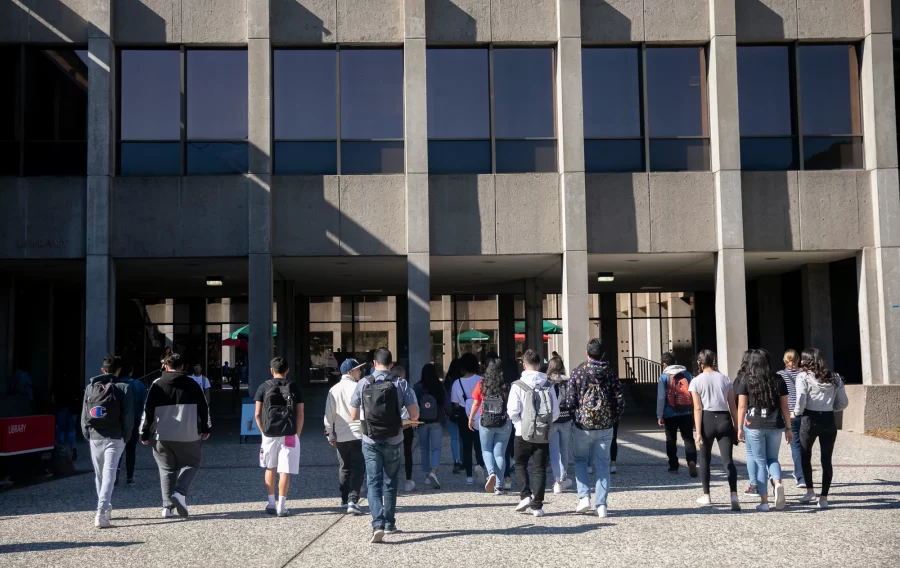New Semester, New Housing
November 10, 2021
Spring Semester Schedule Leaves Narrow Timeframe for Students to Find Housing
Students at California State University, East Bay will have to take their Spring 2022 classes on campus, forcing them to relocate to the Bay Area, causing financial stress.
Some students see this as a major inconvenience, considering they were able to complete courses remotely, without extra housing costs. “I was saving money studying at home. Now I have to move five hours away just to finish two classes in-person that could have easily been provided online,” commented a CSUEB student, who wished to remain anonymous.Other students expressed relief and excitement at the opportunity to return to in-person learning, enjoying the rest of their college experience the way it was before the pandemic. “My online learning experience wasn’t the greatest, it was very hard to get through. My brain is more receptive to in-person learning, and I also wanted to enjoy the rest of my college experience not behind a screen,” shared CSUEB student Karen Orozco.
With only two months left to find housing before the spring semester begins, students are looking for accommodations on Craigslist, Facebook Groups, and other platforms. While these platforms are useful, it’s important to notice red flags in housing posts and offers to avoid being scammed and left without housing.
Verifying authenticity in every offer is incredibly important. “When looking for potential housing, complete a Google Map search of the address to make sure it actually exists. Using the street view map, you can also see the exterior of the building to see if it matches the photos shown in the housing ad,” shared Dr. Michelle Rippy, a professor of Criminal Justice at CSUEB.
As some scams have already been flagged or reported by property managers, checking the property’s address on Google can be useful to prevent being scammed. It’s also important not to be swayed by the apparent legitimacy of posts on sites like Rent.com and Apartmentfinder.com. Though the sites feel more legitimate than Craigslist, they don’t verify the posts, according to Rippy.
The legitimacy of online posts can be checked by using other platforms. Sites like Zillow.com can be helpful by checking to make sure the address is real and it can inform how much housing goes for in the area, informed Rippy. This can be important if the post lists the residence for a price higher or lower than what is normal in the area.
There are more red flags to notice. Other red flags include, “landlords or management agencies who refuse to meet you in person or let you view the unit before you place a deposit down,” as well as, “ads without photos or at a price significantly below market value,” mentioned Rippy.
Personal information is vital to safeguard while looking for housing. If an owner or property manager of a place asks for information such as social security number or credit card to view a property, it is a red flag. Additionally, property owners should never require credit card checks in order to view a property, though they are commonly requested in the leasing process.
Money is another important aspect to safeguard. Renters should also never require a “hold” payment in order to view the property, informed Rippy. While security deposits are commonly required, they should be less than or equal to one month’s rent. They should not be requested to be deposited in gift cards, money orders, money grams, or any other form of non-traceable payment, warned Rippy.
While there are preventive measures to avoid being scammed, it is still possible to encounter scamming in the search for housing. It is important to save all correspondence with the scammers and turn it into a local police department to file a report. Print the ad if it is still posted, and flag it to save others from being scammed.
To report a scam to the Federal Trade Commission visit here. Additional housing resources here and here.
















